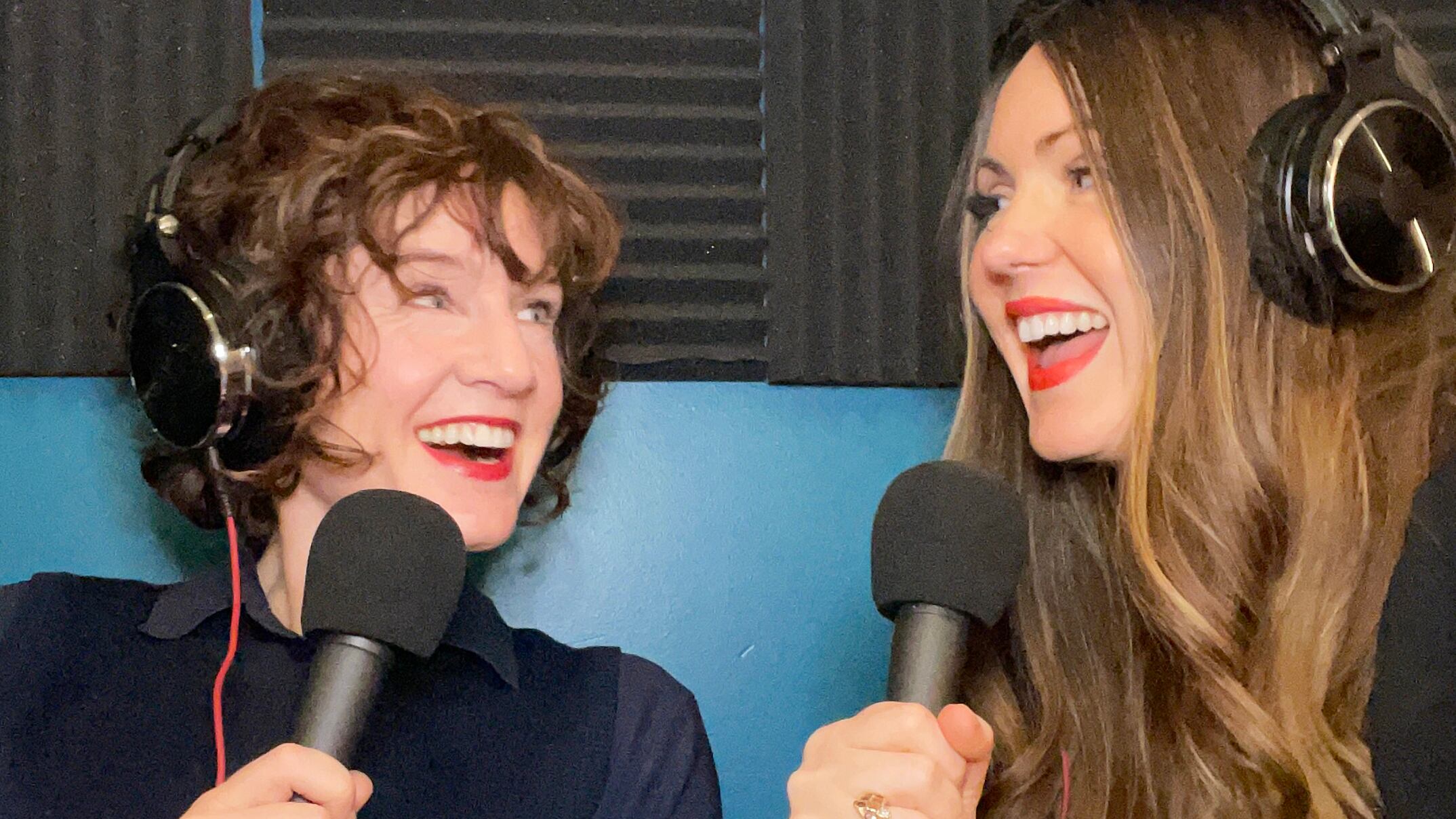Any journalist knows the feeling: You file a carefully crafted story but know deep down that it doesn’t contain the best bits of your reporting.
It’s an occasional and perhaps inevitable disappointment of the trade. Maybe the story’s prescribed structure had no room for memorable tangents. Maybe the source dropped an “off the record” at a scintillating moment. Maybe the best interview nugget simply wasn’t verifiable.
With 35 years of journalism experience between its hosts, We Can’t Print This aims to pick up those many choice pieces and reassemble them into a podcast that amplifies “the stories we don’t know behind the stories we do.”
Eden Dawn and Fiona McCann, two former longtime Portland Monthly editors and self-described “work wives” wrapped their podcast’s first season in late spring—12 conversations with writers (most of them Portlanders) that don’t fit that sometimes narrow definition of “newsworthy.”
They know that game well.
“I had a very long, extended Tonya Harding experience where she ended up wearing my prom dress in front of me,” says Dawn of the time she helped style the Olympic figure skater for a Portland Monthly photo shoot. “It was a really weird day. That can’t go in print. That’s like the bit you tell around the cocktail party.”
In the podcast forum, however, the guests are more than happy to share the yarns they couldn’t publish or the experiences no one thought to ask about—like novelist Emily Chenoweth’s take on the bizarre dynamics of celebrity ghostwriting, Melissa Maerz’s account of crafting the pitch email to Richard Linklater that became her oral history of Dazed and Confused, and screenwriter Jon Raymond explaining how First Cow was born from drunken porch chats.
Unearthing these stories on the air, Dawn and McCann have the coordination of right and left hands, engaging with guests in cordial, equal measure. Specialties may vary, though. Dawn is more likely to recite Cool Nutz lyrics; McCann is more likely to invoke English poet Gerard Manley Hopkins.
In their Writers’ Block podcast studio in the Pearl District, Dawn and McCann approximate their beloved Portland Monthly confines, where they spent nearly 20 years combined before departing in 2021 and 2022, respectively. Back in the day, they shared “an office for one” and planted the seeds of both their shared 8-year-old Monstera plant (“Daisy Rose Dawn McCann”) and their eventual podcast. Frequently, a colleague would duck in, shut the door, and enthusiastically recount a story that could never make the magazine.
“I’ve always strongly felt that gossip had a bad rap,” McCann says. “It’s how we pass information when we’re outside of defined information circles.”
In Season 1, We Can’t Print This created its own information circle with guests familiar to Dawn and McCann. That streak of interviewing friends could shift in Season 2 (stay tuned after a “short summer break”) and has to end eventually if the podcast ever lands dream guests like Stephen King, Julio Torres, Saeed Jones or Maggie Nelson.
Heading into every recording, Dawn and McCann have had some idea of what guests want to discuss. But in each episode—sometimes edited from several hours down to 40-odd minutes—they’re still digging. Sometimes the best shovel is Dawn’s go-to interview closer: “Was there anything else you wanted to talk about today?”
That question paid especially compelling dividends in Episode 8 when Portland actor and writer Vin Shambry—ostensibly there to discuss his forthcoming film Outdoor School—dropped a closing anecdote from his collegiate theater experience in Wyoming. Shambry, who is Black, going public with an absurd, nightmarish memory about his otherwise all-white class staging Showboat essentially explains why We Can’t Print This exists.
The tales themselves mitigate any risk of the podcast becoming inside baseball for journalists. When advice for writers does sneak in, it typically concerns another of McCann and Dawn’s professional ambitions—building creative community in an often isolating profession.
“I don’t know when it’s ever been a great time for writers,” McCann says, “but I don’t think it’s now.”
“Writing can feel like a very exclusive world where you have to be granted the keys,” Dawn adds. “Where you have to have gone to [journalism] school or have a published novel, and I think all of that is total bullshit. I want to call people in.”
LISTEN: Episodes of We Can’t Print This stream at wecantprintthis.com.

